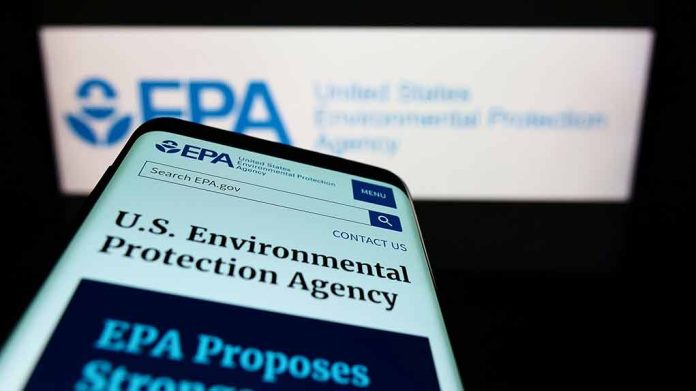
The Environmental Protection Agency’s decision to ban trichloroethylene (TCE) and perchloroethylene (Perc) stands as a significant milestone in the battle for public health and environmental safety, shaking the very foundations of decades-long industrial practices.
At a Glance
- The EPA banned cancer-causing solvents TCE and Perc.
- TCE is linked to multiple cancers and has contaminated U.S. drinking water.
- The 2016 strengthening of the Toxic Substances Control Act supports this ban.
- Safer alternatives for these solvents are available.
The Health Risks of TCE and Perc
TCE and Perc are solvents with established carcinogenic properties used in various industries, notably dry cleaning and automotive care. TCE is linked to liver, kidney, and non-Hodgkin’s lymphoma cancers, as well as damage to the nervous and immune systems. Perc, though comparatively less harmful, still poses significant risks, including liver, brain, and testicular cancer. TCE’s presence in the U.S. drinking water supply has been notably highlighted in the book and movie “A Civil Action.”
The EPA’s comprehensive ban on TCE covers all its uses, confirming the agency’s commitment to public health. By banning TCE and limiting Perc’s commercial use while imposing stringent worker protection conditions, the EPA intends to mitigate legacy environmental and health risks. These rules aim to enhance the health of communities exposed daily to these hazardous chemicals.
Environmental and Health Advocacy
Advocacy groups have long pushed for these regulatory measures, facing resistance from industrial sectors concerned with potential economic fallout. Yet, as Michal Freedhoff, Assistant Administrator of the EPA’s Office of Chemical Safety and Pollution Prevention, stated: “It’s simply unacceptable to continue to allow cancer-causing chemicals to be used for things like glue, dry cleaning or stain removers when safer alternatives exist.”
The directive aligns with President Biden’s Cancer Moonshot initiative, epitomizing a significant public health policy commitment. However, future political shifts may threaten its continuation, especially with concerns about deregulation voiced by environmentalists and health advocates.
Industry Concerns vs. Public Health
Industry representatives argue that such government mandates can induce financial strain on sectors reliant on these chemicals for decades. Yet, the availability of safer alternatives underscores the EPA’s resolve to prioritize citizen welfare over economic concerns linked to outdated technologies. With the EPA providing compliance guidance and planning public webinars, these actions suggest proactive steps to ease this industrial transition while upholding essential health measures.
“Over 40 years ago, a mother named Anne Anderson from Woburn, Massachusetts, approached me and started a crusade to keep any more children… from dying from cancer caused by toxic chemicals. Anne’s work directly led to this announcement from the Environmental Protection Agency that I am overjoyed to celebrate today… a finalized ban on trichloroethylene and most uses of perchloroethylene…” – Senator Ed Markey (D-MA) Source
As the EPA staunchly advocates for health and safety, these regulations may redefine industry standards in dry cleaning, automotive repair, and manufacturing. Despite potential legal challenges and political resistance, the bans aim to significantly reduce cancer risks, underlining the agency’s steadfast role in chemical regulation.






















